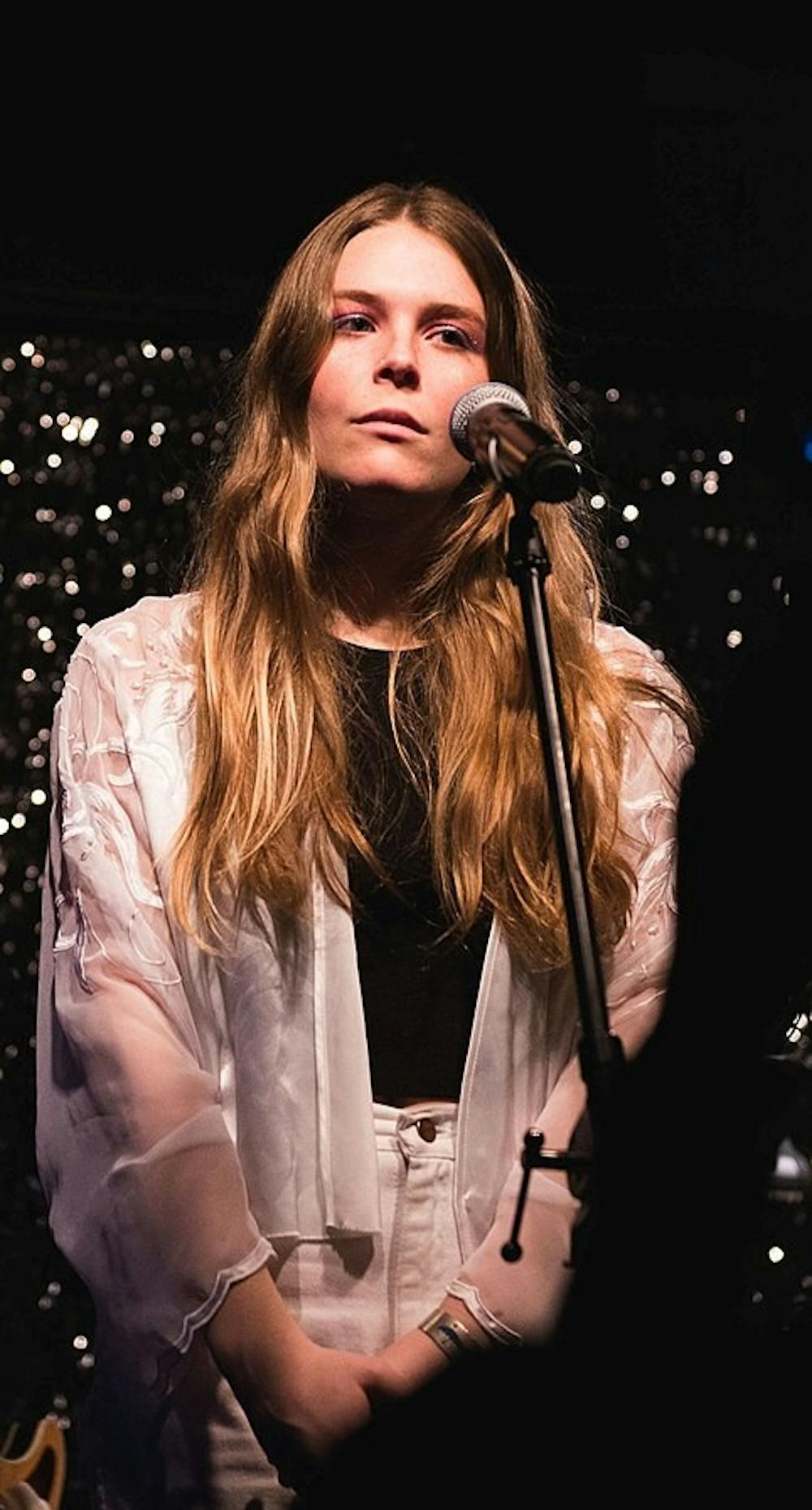Maggie Rogers’ highly anticipated debut album was released last Friday, packing a mix of original sound from tracks of her EPs — such as “Alaska” and “On + Off” — as well as new influences. The album is the kind that you would listen to while driving quickly down a dark road, or cutting your hair in a fit of self-discovery. This is an album meant to be listened to in order, as in many ways it is Rogers’ path towards stardom in a tight 45 minutes. It opens with “Give a Little,” saying “Maybe we can get to know each other” and travels through “[changing] overnight” in “Overnight” to fears, letdowns and resolution. The melodies are not necessarily revolutionary and are in some cases overproduced — see “Overnight” or “The Knife”— yet Rogers as a poetic lyricist warrants a deeper analysis.
The singer-songwriter from rural Maryland maintains the style Pharrell once revered as completely original in a masterclass at New York University, but it is certainly altered by the influence of Greg Kurstin, who aided in production and co-wrote six of the 12 songs. Kurstin, a five-time Grammy winner, has worked with acts like Adele, Sia, Beck and Kelly Clarkson in the past. While this development does not take Rogers away from the typical singer-songwriter roots, the overproduction of certain tracks creates a contradicting tone throughout the album. Songs like “Alaska,” “Light On” and “Past Life” seem almost out of place as they have a more naturalistic, original and authentic sound compared to the techno dance songs. The jump from electric to acoustic and back again is jarring to say the least but is refreshing at the same time. Rogers is not out to create something that you could play in the background of a coffee shop. There is no gentle strumming of a guitar or soft-spoken tracks. The beats are staccato, her voice bounces between octaves in a single song, demanding attention. She’s telling a story that is as confusing as any 24-year-old’s, and while not entirely new, it is still noteworthy.
Whether or not Rogers is speaking in reference to love, the music industry, her own personal development or all of the above, there is at least one gut-wrenching line in every track. From the desperate cry of “you should be so happy now” off of “Light On” to “I never loved you fully in the way I could” on “Fallingwater,” each track has its own reason to be heard. And while the high harmonies and warbled belting throughout the album are reminiscent of The Cranberries and other powerful females in the music industry, Rogers manages to stand out in her own way.
While you could definitely work your way through a quarter-life-crisis panic attack to any of the songs, perhaps the most cathartic song on the whole album is “Back In My Body,” the final track. The entirety of “Heard It in a Past Life” can be summed up in this last track, as the concept of coming back into one’s self is paramount throughout Rogers’ story-telling. Every track has a somewhat forest-nymph-like sound, whether that is because of Rogers’ affinity for filming her music videos in the woods or the almost windchime sound to her vibrato.
Whether “Heard It in a Past Life” influences you in self-discovery through naturalistic sounds or through the freedom of dancing to the bright sounds of the more techno tracks, it’s nearly impossible to come out of listening to Rogers’ debut album without looking in the mirror, wondering if you should cut your hair or let it grow until you pick up fallen leaves off the ground and share in Rogers’ whimsical energy.







